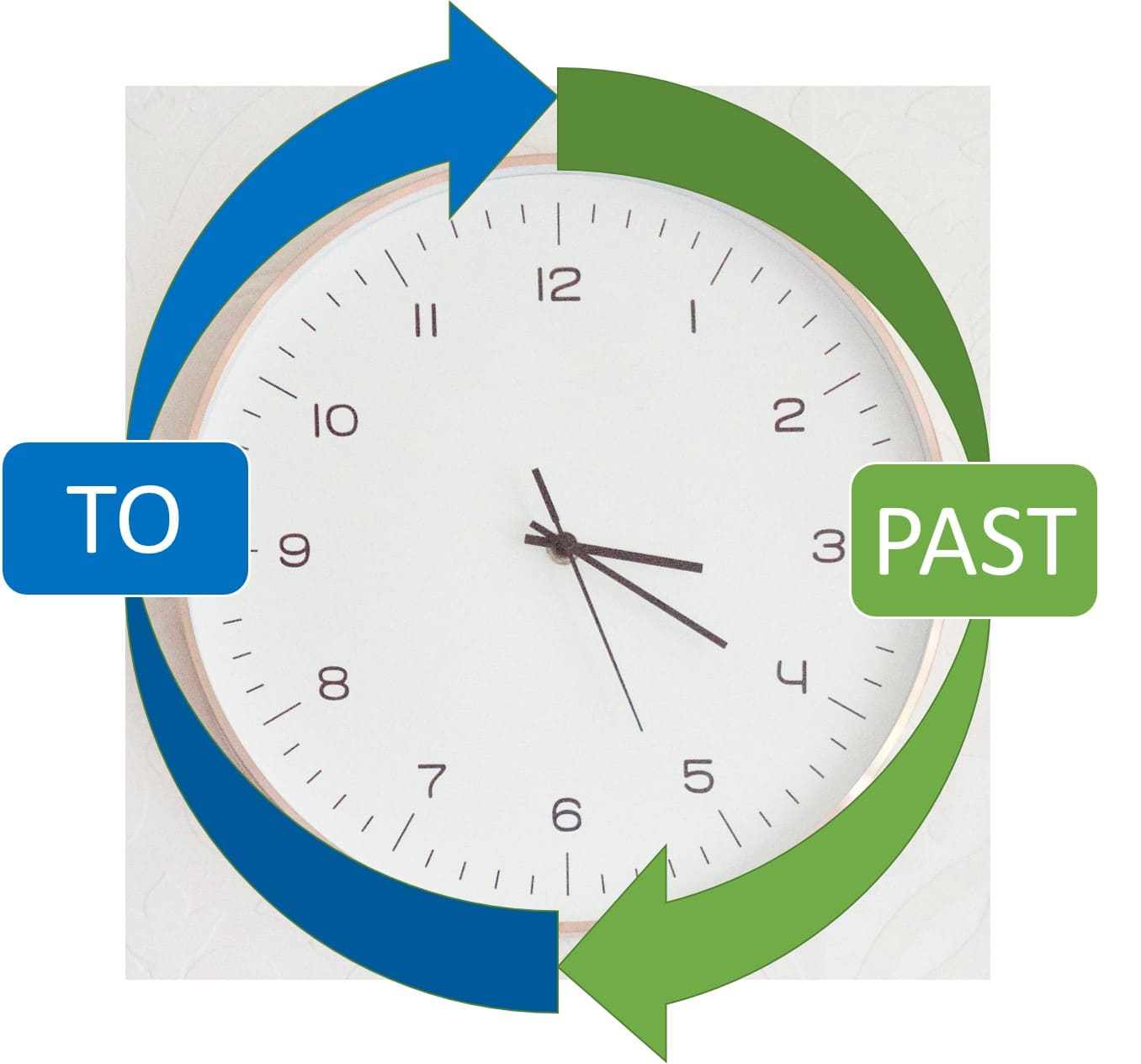 Telling the time in English. On this page, let’s look at telling the time. This is more than just numbers – you need to be able to use different phrases. Let’s start by looking at parts of the day.
Telling the time in English. On this page, let’s look at telling the time. This is more than just numbers – you need to be able to use different phrases. Let’s start by looking at parts of the day.
| Time | Part of the day |
| 0:00 to 12:00 | Morning |
| 0:00 to 11:59 | A.M. |
| 12:00 | Midday / Noon |
| 12:00 – 23:59 | P.M. |
| 12:01 to 18:00 | Afternoon |
| 18:00 to 22:00 | Evening |
| 22:00 – 23:59 | Night |
| 0:00 | Midnight |
Some example phrases for hours:
- 9:00 – It’s nine o’clock in the morning / It’s nine o’clock / It’s nine a.m.
- 12:00 – It’s midday / it’s 12 noon / It’s noon / It’s twelve o’clock
- 3:00 – It’s three o’clock in the afternoon / It’s three o’clock / It’s three p.m.
- 19:00 – It’s seven o’clock in the evening / It’s seven o’clock / It’s seven p.m.
- 23:00 – It’s eleven o’clock at night / It’s eleven o’clock / It’s eleven p.m.
Now let’s look at the phrases used for parts of an hour.
 |
From 1 minute past the hour to 30 minutes past the hour (for example from 3:01 to 3:30), we use the phrase ‘past’
3:10 – It’s ten past three. 9:25 – It twenty five past nine. For 31 minutes past the hour to 59 minutes past the hour (for example from 3:31 to 3:59), we use the phrase ‘to’ 3:40 – It’s twenty to four. 9:55 – It’s five to ten. |
There are three other clock times that you need to know, where one hour is divided into 15 minute sections:
- 3:15 – It’s quarter past three / It’s three fifteen.
- 6:30 – It’s half past six / It’s six thirty.
- 11:45 – It’s quarter to twelve/ It’s eleven forty five.
NOTE: American English uses ’till’ instead of ‘to’ (e.g. 9:55 – It’s five till ten. 11:45 – It’s quarter till twelve)
In most conversations, when telling the time in English, you already know the hour – you just need to know the minutes.
For example:
- John: What time is it? I think my lunch break is over.
- Jane: It’s twenty five past, and you don’t start work until half past. You’ve got another 5 minutes.
When you are talking about approximate time, you can use ‘nearly’ or ‘just gone/just after’.
Here are some other expressions that you can use to ask about the time.
- Do you have the time?
- What time is it?
- What is the time?
- Do you know what time is it?
- Can you tell me what time it is, please?
- Could you tell me the time, please?
- What time do you make it?
Let’s review this page:
- Sue: What time do you start work tomorrow?
- Dave: 10 o’clock in the morning, but I have a break at midday.
- John: Excuse me, can you tell me what time it is, please?
- Dave: Yes, it’s just gone eleven.
- Jane: What time do you make it?
- Dave: It’s nearly half past.
- John: Do you have the time?
- Eric: It’s quarter to four.
Now practice your skills with an exercise. Click the link in the table below to see what you know about telling the time!
